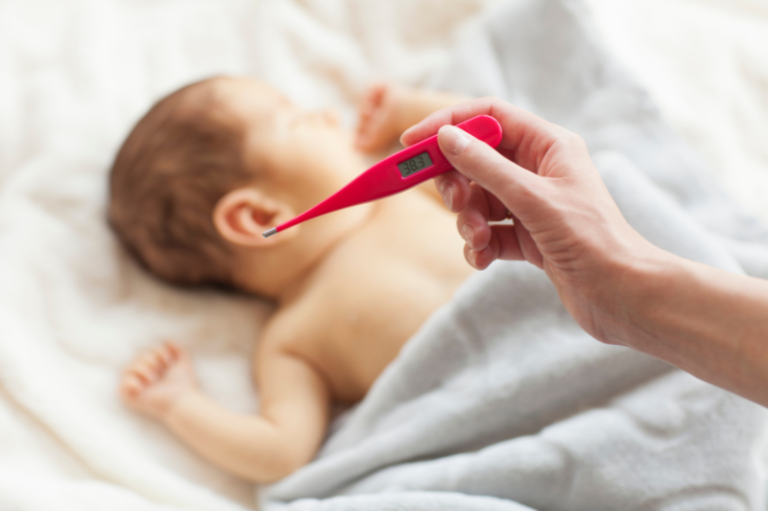Back To School: What Does The School Nurse Want to Know?

*This is for educational and informational purposes only, this is not to be taken as medical advice. Please always consult your doctor with any questions or before taking or giving your child any medications*
It’s that time of year again, summer break is coming to an end or if your kids go to a year-round school, it could already be over. It’s an exciting time, but can also be stressful as you and your family adjust to a new schedule and maybe a new school. One thing that needs to be on your to-do list is making sure you communicate with the school nurse if necessary. So, what does the school nurse want to know?
Some things are obvious, like if your child is known to have seizures, but others you might not have thought about. And more times than not, the nurse would rather have more information than not enough.
Asthma or Difficulty Breathing
For kids who have severe asthma and take medication daily, I’d say that you as parents know that the school nurse needs to know about it. The main things they want to know are:
- What medications do they take?
- How often to take them?
- Do they have a rescue medication and plan?
- Do they use an inhaler? Or do they have a nebulizer? that maybe they need to keep in the office?
- How serious is their condition?
- Have they had to be hospitalized before due to an asthma attack?
- Have they ever been intubated (had to have a breathing tube)?
These are all things that will help the nurse give your child the best care.
But what if maybe your child has an inhaler that they use every now and then? When they get a cold or sometimes when they are playing outside or playing a sport? They want to know. Because usually they don’t keep their inhaler with them, so in the case they have an asthma attack or are having difficulty breathing, having that information will help the nurse decide the best course of action for your child.
Allergies
By allergies I’m talking more about food allergies or being allergic to bees. Seasonal allergies are annoying, but are not life-threatening.
Food allergies can be extremely serious. And typically the more someone is exposed to the allergen, the worse the reaction gets. If your child has been seen for an allergic reaction to food they more than likely have an epi-pen, which the school will absolutely wants to know about. But even if they’ve had a reaction and you’ve given them Benadryl and it’s cleared up, they still should know.

I remember when I was in middle school we had THE WORST bee-problem at the school. It was nearly impossible to eat lunch! I don’t know how many kids got stung that year. Most people have a little swelling and redness where they got stung, and it hurts. But for some it sends their immune system into overdrive and they can have an anaphylactic reaction, a serious allergic reaction.
Again, reactions can get worse the more someone is exposed, so say your child was stung and they had more than your normal amount of swelling around the site, or maybe they broke out in hives. They didn’t a hard time breathing and some Benadryl took care of the symptoms, I would tell the nurse.
The other type of allergy that is super important to inform the nurse of is any allergies to medications. Not that they give out medicines on the regular, but it’s still good for them to know.
Seizures
This one is pretty obvious. They want to know. They’ll want to know a few things:
- What medications do they take for control
- What do their seizures look like? Full body shaking, staring to one side, one sided movements?
- What rescue medications do they have? And when do you give them? (meaning after how long?)
- Have they had to have a breathing tube before because of a seizure?
- How often do they have seizures?
- Are there any known triggers?
Diastat is a pretty common rescue seizure medication, but it is typically given rectally. They do have intranasal (nasal spray) options too. Just saying that most people would prefer this option, especially if it needs to be given somewhere other than home.
One more note about seizures, if your child is younger like preschool or kindergarten, and has had a febrile seizure before I would let them know. Typically this is something that they grow out of by 5 years old, but as a nurse it’s still good information to have.
Mental Health Concerns
Last but most certainly not least! Mental health concerns. If your child has been seen for anxiety or depression, or has tried to harm themselves before the school and school nurse needs to know. It is something we see so often as healthcare workers and we want to make sure the kids are getting the support they need.
If you have any concerns please let the nurse know. If your family is going through something traumatic, like the loss of a loved one, divorce, or any kind of abuse these are reasons to talk with the nurse. I’m not saying you have to air all of your dirty laundry. But, keeping the nurse in the loop allows them to be on your team in caring for you child.
The National Institute of Mental Health has great resources as well.
Bottom Line
If you are wondering “should I let the school know?” The answer is yes. They don’t want to find themselves in a situation where they’re saying “I wish I had known…”
And don’t forget to snag your free guide to keeping your family healthy not only as school starts, but all year round!
xx, Mollie
Other Posts You Might be Interested In







